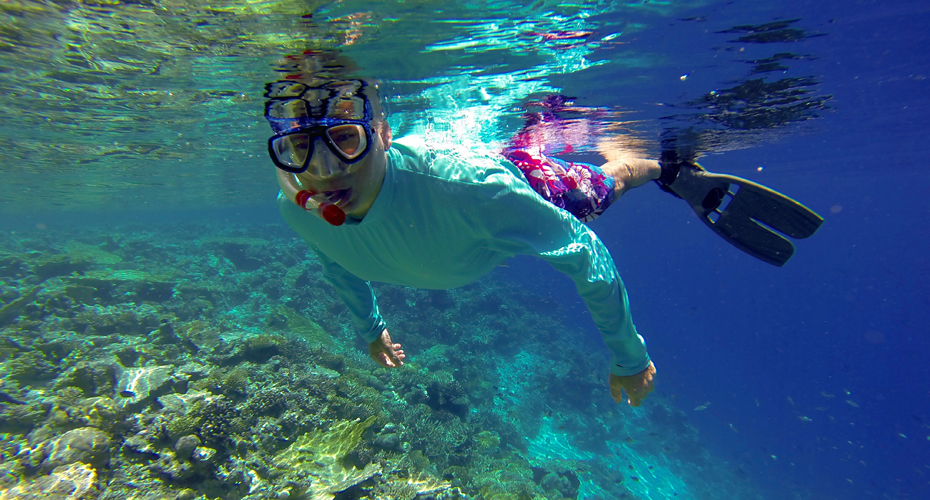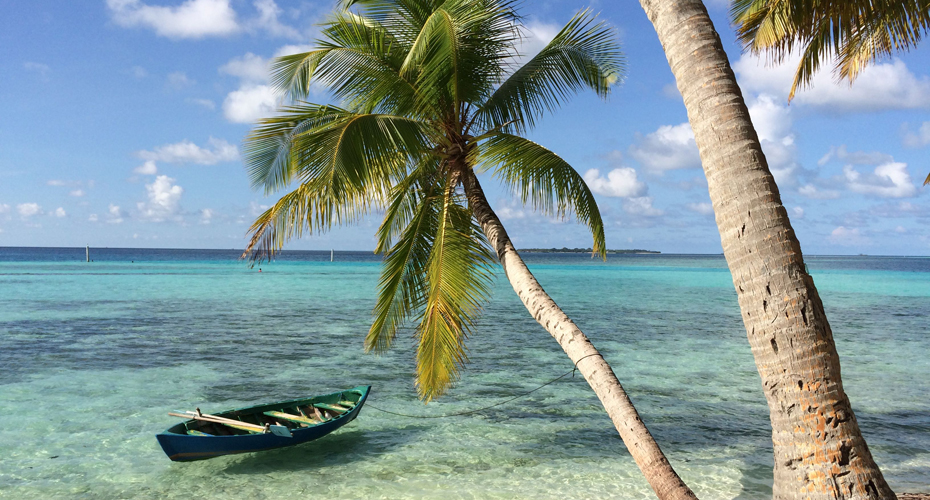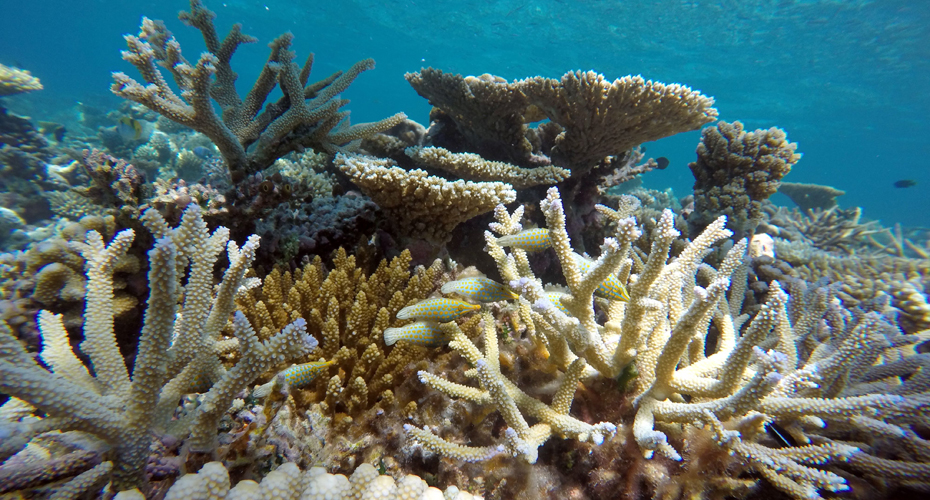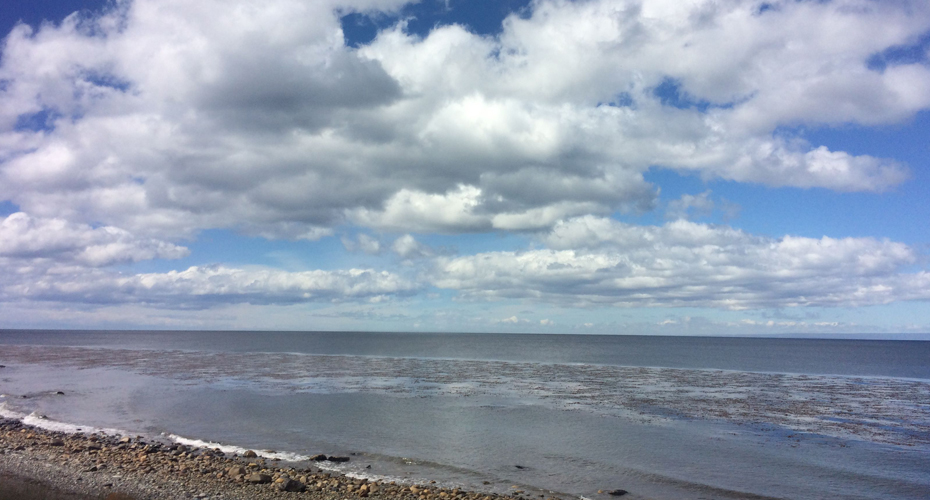Masters applications for 2023 entry are now closed.
Applications for September 2024 will open on Monday 25 September. Applications are now open for programmes with a January 2024 start. View our programmes »
| UCAS code |
1234 |
| Duration |
1 year full time
2 years part time |
| Entry year |
2024 |
| Campus |
Penryn Campus
|
| Discipline |
Ecology and Conservation
|
| Contact |
|
| UCAS code |
1234 |
| Duration |
1 year full time
2 years part time |
| Entry year |
2024 |
| Campus |
Penryn Campus
|
| Discipline |
Ecology and Conservation
|
| Contact |
|
Overview
- Explore the relationships between coastal and marine ecosystems and human activity
- Includes an international field course to the Maldives with up to ten dives possible and UK-based fieldwork. Please note, a low-carbon alternative programme is also available.
- Gain transferable skills for marine environmental management, and learn to use 'R' and GIS
- Dissertation can involve external placement/s
- Delivered by internationally recognised experts in a location surrounded in coastal and marine biodiversity
Due to the high demand for this programme we highly recommend that you apply early. Applications can be made from September 2023. If we experience high demand it may be necessary for us to operate waiting lists or close the programme.
Top 20 in the UK for world-leading research in Biological Sciences
9th in the world for Ecology
90% of our Biological Sciences research is internationally excellent
High-quality research supervision, with access to excellent facilities
Entry requirements
A 2:1 degree or above in a relevant science subject* is normally required. We will be happy to consider applicants with a non-scientific background who have a strong academic profile and/or significant relevant work experience of 2+ years, on individual merit.
*Relevant subjects include: Biology, Biosciences, Ecology, Evolutionary Biology, Geography, Marine Biology, Natural Sciences, Zoology.
Entry requirements for international students
English language requirements
International students need to show they have the required level of English language to study this course. The required test scores for this course fall under Profile B2. Please visit our English language requirements page to view the required test scores and equivalencies from your country.
Being on a campus where everyone is interested in conservation, the environment and sustainability was such an encouraging environment to develop views and opinions, and discussing with different people about their research was very inspiring. I had studied fisheries management solely from an ecological perspective until I took the Marine & Coastal Sustainability module, which completely turned around my view on the management of fisheries and convinced me of the need for interdisciplinarity in conservation and management.
Since graduating I moved to the Falkland Islands to work on fishing vessels and collect data for the Falkland Islands Government. It can be quite a tough job, but it's teaching me so much on the amount and quality of data required to manage fisheries. I'm so excited to apply everything I've learned in this position into managing fisheries! I was a member of the Sea Swimming Society at Exeter, and am proud to say I'm continuing to do this in the South Atlantic, where the water is much colder than in Cornwall...
Read more from Lise, France
Lise, France
Scientific Fisheries Observer, Falkland Islands Government
Studied MSc Marine Environmental Management, 2022
Course content
The ocean covers 71% of the surface of the Earth, but when depth is accounted for, occupies 97% of the volume of the biosphere. This means that the sea and life within it has a profound influence on the processes which keep the planet habitable. Yet until recently the ocean has been neglected in terms of management and protection, despite growing evidence of adverse impacts from a long list of human influences, such as overfishing, habitat damage and biodiversity loss, pollution, and climate change.
Global attention is now turning rapidly to how to safeguard ocean life and the people and industries that depend on it, leading to increasing demand for trained practitioners of marine environmental management. MSc Marine Environmental Management delivers this training, giving you a thorough grounding in a wide diversity of marine ecosystems, their ecology, functioning, and values to people.
The programme explores the diverse ways in which human activities affect marine life and introduces management approaches to alleviate pressures from activities such as fisheries, tourism, coastal development and climate change. It examines in depth the science and practice of creating and managing marine protected areas to safeguard marine life and promote human livelihoods and wellbeing.
The modules we outline here provide examples of what you can expect to learn on this degree course based on recent academic teaching. The precise modules available to you in future years may vary depending on staff availability and research interests, new topics of study, timetabling and student demand.
Course variants
In line with our commitment to tackling the global climate emergency, we offer this programme with a low-carbon UK field course destination. This allows you to make an alternative choice when applying for this course. This programme also offers lower tuition fees.
The MSc Marine Environmental Management with UK field course offers the alternative field course option and allows you to consider the meaning of the word “wild” in the UK. Topics will include exploitation of the UK’s ecosystems, global policy impact and the behaviour and ecology of the UK’s fauna and flora.
This residential field course will perform a transect through the United Kingdom’s hotspots of marine and terrestrial biodiversity, human-wildlife conflict and ecological restoration. You will see the endangered wildlife of the UK, and meet the people who are stakeholders in their management or their conservation: National Park authorities; farmers; Natural England employees; conservation charity managers; people delivering species translocations; researchers; ecological consultants; tourism operators and the general public.
Read more about the alternative field course module
When participating in field courses, you may be required to provide your own specialist personal equipment appropriate to the field course destination, e.g. walking boots, rucksack.
Fees
2024/25 entry
UK fees per year:
£15,700 full-time; £7,850 part-time
International fees per year:
£29,500 full-time; £14,750 part-time
The fees include costs of field trips including a 2-week residential course to the Maldives.
Please note, in line with our commitment to tackling the global climate emergency, we offer a variant of this programme which provides a low-carbon UK field course destination. This allows you to make an alternative choice when applying for this course. The alternative programme also offers lower tuition fee costs. For more information about this alternative, please see the variants section.
MSc Marine Environmental Management with UK field course
UK fees per year:
£14,500 full-time; £7,250 part-time
International fees per year:
£28,300 full-time; £14,150 part-time
Scholarships
We invest heavily in scholarships for talented prospective Masters students. This includes over £5 million in scholarships for international students, such as our Global Excellence Scholarships*.
For more information on scholarships, please visit our scholarships and bursaries page.
*Selected programmes only. Please see the Terms and Conditions for each scheme for further details.
Additional course costs
When participating in field courses, you will need to cover the cost of any relevant immunisations, if necessary. For the Maldives field trip, you will be required to provide your own mask, fins, snorkel, booties and thin wetsuit, if you prefer to wear one. Additional costs may be incurred for your research project, depending on what you choose to study. You will need to cover the cost of having a business visa and a diving medical for the field trip.
Read more
Teaching and research
Our research
In recent years the University of Exeter’s marine education and research has been growing fast. Our interdisciplinary marine research spans the humanities, physical, social and natural sciences. Marine research groups, containing over 350 researchers, can be found in all of our Colleges and interdisciplinary research institutes.
Research is organised into nine major interdisciplinary themes which sees us working collaboratively with a wide range of partners locally, regionally and across the world’s oceans to shape positive changes in practice, policy and innovation. The research groups include:
How will I learn?
- Seminars
- Workshops
- Fieldwork
- Group discussion
- Independent study
There is considerable scope for you to direct your learning towards fields of particular interest, especially through your choice of research project. Research seminars will enable you to interact with a diversity of top academics and get to know about their ongoing research.
Research project
A large number of Exeter academics will be involved with this programme and they will offer a great diversity of research topics in the UK and overseas. There is also the option to work with an external collaborating organisation as a placement student during your research project, which could be located anywhere in the world.
Tutorial support
Each student is allocated a personal tutor who is available for advice and support throughout your studies. There is also a postgraduate tutor available to help with further guidance and advice.
Assessment
Taught modules will be assessed through formal oral presentation, written reports, essays and discussions, during or upon the immediate completion of the modules. The research project makes up a significant proportion of the assessment and is mainly based on the dissertation write up.
Read more

Dr Julie Hawkins
Programme Director

Professor Callum Roberts
Professor of Marine Conservation
.jpg)
Professor Annette Broderick
Professor of Marine Conservation

Dr Kristian Metcalfe
Senior Lecturer in Marine Conservation Science

Dr Rachel Turner
Senior Lecturer in Environmental Social Science

Dr Erik Postma
Associate Professor
Dr Julie Hawkins
Programme Director
Julie studies human impacts on marine ecosystems and how to alleviate them. Her field research is primarily on coral reefs, documenting the impacts of fishing and tourism, and devising strategies to secure greater protection. She is particularly interested in how marine protected areas can be designed and managed to protect wildlife and habitats, boost surrounding fisheries and promote more sustainable livelihoods. Julie’s research also looks at the global need to scale up protection by building networks of protected areas to help recover ocean ecosystems and enhance resilience to climate change.
Profile page
Professor Callum Roberts
Professor of Marine Conservation
Callum’s research focuses on threats to marine ecosystems and species and on finding the means to protect them. His team provided the scientific underpinning for a new ocean protection target – 30% by 2030 – which is gaining widespread international support. He is an award-winning author and was chief scientific advisor for the BBC’s flagship series “Blue Planet II”. He is chief scientific advisor to BLUE Marine Foundation and the Maldives Coral Institute, an Ambassador for WWF UK, and board member of the Nekton Deep Ocean Research Institute.
Profile page
@ProfCallum
Professor Annette Broderick
Professor of Marine Conservation
Annette’s research focuses on the exploitation and status of marine vertebrate populations, in particular marine turtles, utilising satellite tracking and mark and recapture to understand the thermal ecology, sex ratios, habitat use, navigational abilities, growth rates and fecundity of individuals. Given the importance of the thermal environment on reptilian species, the potential effects of global climate change are a major issue for this group, and a focus for her research. Annette runs a long-term field study of the marine turtle populations in Cyprus.
Profile page
Dr Kristian Metcalfe
Senior Lecturer in Marine Conservation Science
Kristian is a conservation scientist with wide ranging interests in biodiversity conservation. His research focuses on decision making for the assessment, protection, and management of marine biodiversity, with particular emphasis on marine spatial planning and the design of marine protected area networks (MPAs) in the UK, and in West and Central Africa. Kristian is also interested in how novel technologies such as satellite/GPS tracking can be used to understand the behaviour and distribution of marine vertebrates and small-scale fishers to inform the development of priority areas, and resolve conflicts in marine space.
Profile page
@_KMETCALFE
Dr Rachel Turner
Senior Lecturer in Environmental Social Science
Rachel is an environmental social scientist focusing on marine resource governance and coastal communities. Her research focuses on understanding how socio-economic and environmental contexts drive resource use behaviour and have implications for management and governance systems. Her recent research has explored marine resource dependence and identification of supportive governance structures for effective Caribbean coral reef management.
Profile page
Dr Erik Postma
Associate Professor
Erik studies the individual and population-level causes and consequences of variation in the traits related to the most important events in an individual's life, including: birth, mate choice, reproduction and death. To this end Erik uses individual-based, long-term data for a range of species, including rodents and humans.
Profile page
Fieldwork
Fieldwork is an integral part of the programme and the location of the Penryn Campus provides excellent access to local marine and coastal environments, allowing short field trips to be embedded within the modules.
The field course to the Maldives will allow you to learn about the wonder of Maldivian coral reefs, their rich biodiversity, structure, functioning, threats from climate change, and management needs. Daily practicals will involve snorkelling and also some diving for those with a Rescue Diver qualification. During these you will practice a variety of the reef survey techniques taught. Impacts of climate change and capacity for reef recovery are evident during fieldwork and your data will contribute to long-term monitoring of the reefs. Topics covered in daily lectures will include coral reef ecology, human impacts to reefs, and taxonomy.
In line with our commitment to tackling the global climate emergency, we offer this programme with a low-carbon UK field course destination. This allows you to make an alternative choice when applying for this course. For more information about this alternative, please see the variants section.
Please note that some field courses may incur additional costs - see the Fees section for more information.
Careers
Employer-valued skills this course develops
This programme will provide you with a diversity of skills that will equip you for a range of sectors of work and further study of marine environments. Skills include:
- Scientific writing and poster preparation
- Grant writing
- Public speaking
- Short film production
- Press release and the professional use of social media
- Data analysis
- Writing scientific information for a lay audience
- Use of “R” and GIS.
Career paths
The programme will prepare students for careers in environmental NGOs, fisheries management bodies, government agencies, consultancy companies and marine-related businesses such as aquaculture, shipping, offshore energy, etc. The degree also offers a thorough training in research skills and methods so provides an excellent basis for an academic career.
Careers services
Our careers teams at the Career Zone can help guide you through a wealth of information to match your skills and interests to a career that will suit you. Our staff work with regional, national and international employers to develop new work placement, project and graduate opportunities.
Supporting your career
Being part of a large research-intensive department such as the Centre for Ecology and Conservation means there are multiple extracurricular research seminars per week and frequent on-campus symposia and employability focused seminars involving invited external stakeholders offering extensive networking opportunities.
Read more



.jpg)
















